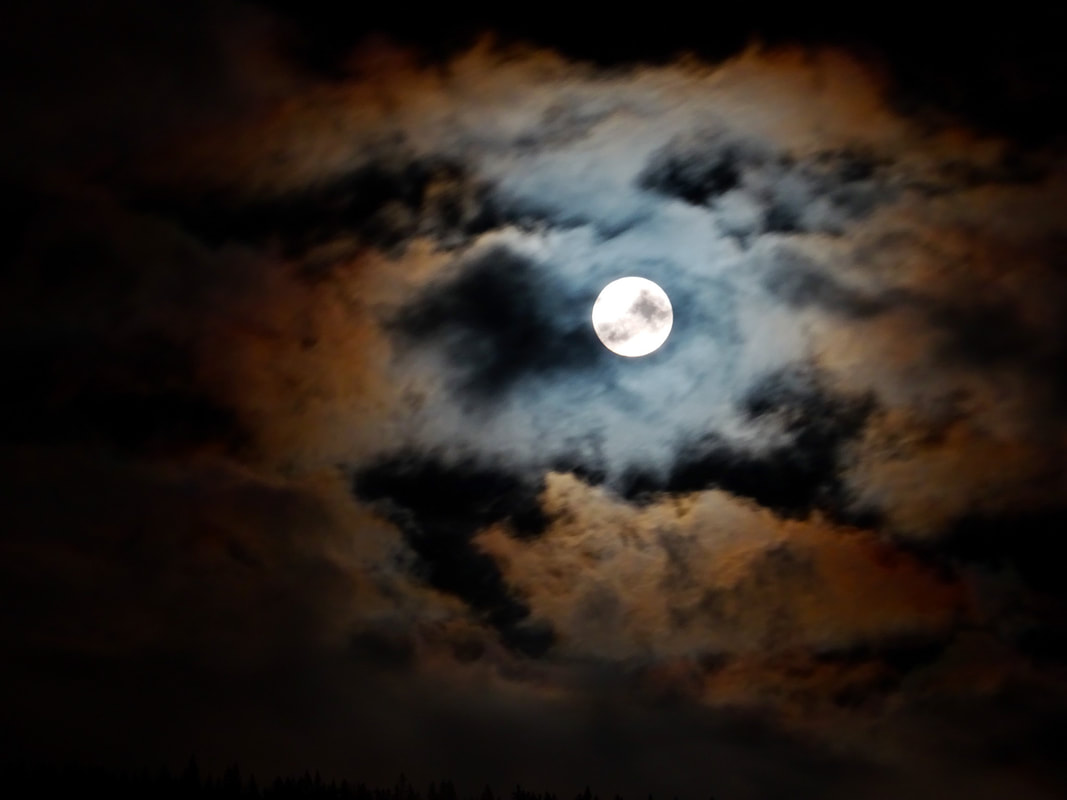|
There is something mysterious and magical about the moon. It runs in a cycle of 29 days and 12 hours. A cycle of forces. Just like an average menstrual cycle. The forces of the moon affect the tide, and some believe it affects us as well. Maybe not so strange, since we're made up of mostly water. And as the moon affects the water, the menstrual cycle affects us. If there is something you suddenly become focused on when you're trying to get pregnant, it is your cycle. You also get a newfound respect for how complicated and wonderful nature has put us together to be able to conceive a child. I don't really remember that we had that much sex-ed. Except for a short session of giggles in a science class, in middle school. Which is kind of sad, when I only now as a full grown adult understand how much we are affected both physically and mentally by each phase of the cycle and how intricate it really is.
Menstruation (days 1 to 5) The first day of the period marks the end of the previous cycle and the beginning of the next. The body gets rid of the layer of uterine lining that is supposed to catch the fertilized egg. The fact that you are bleeding and maybe a little tired with cramps and aches, makes it natural to take it easy. To take a little extra care of yourself the first few days. The level of estrogen and progesterone is low when the period starts. This is one of the reasons why you can feel a little emotional, down and grumpy the days just before and the first days of the period. Estrogen is linked to the production of serotonin, the "happiness hormone". The follicle phase (days 6 to 12). The follicular phase actually starts at the same time as the period. A follicle is a small bladder with a small egg. When the period comes, 3-5 follicles start to grow, of which 1 will eventually be the egg that is released. It's the hormone FSH that signals to the follicles to start growing. This is one of the hormones that is measured when starting fertility treatment and says something about the quality of the eggs. During day 5, a follicle has taken the lead and becomes the egg to be further developed. The rest disappear, ie you lose more than one egg during a cycle. In this phase, the estrogen level rises, and with it the mood and physical capacity also rise. This is the period when the body is at its peak physically, mentally and socially. Personally, I notice, for example, that during this period I am mentally tougher in the climbing gym. Taking chances comes naturally, and I feel stronger both physically and mentally. The energy level is generally higher and I have more stamina during this period. Receiving bad news, for example, is much easier to deal with. Ovulation (days 12 to 16) It's show time! The increasing estrogen is soon at its peak and eventually causes a significant increase in the LH hormone (luteinizing hormone). It's this sudden increase that is gives a positive ovulation test. For us without a partner, this is the time we get on the phone with the Fertility Clinic. The selected egg will now embark on its fated journey down the fallopian tube and hopefully meet up with a handsome swimmer on the way. When the egg is released, it has about 24 hours to be fertilized. The days around ovulation are the days when the woman is at her peak. It's said that you likely tolerate more pain and is at your most social and attractive. After all, the body is trying to make a baby, but if you're not trying for a baby, you can use these latent powers for something else. During these days, it feels a bit like surfing on a wave of green lights and absolutely nothing can go wrong. Luteal phase (days 17 to 28) When the egg is released, the follicle is released into something called the corpus luteum, which produces the hormone progesterone. This leads to a sharp increase in this hormone, which together with estrogen prepares the body to receive a fertilized egg. The lining of the uterus thickens again and the temperature in the body rises. The body gets into incubation mode and creates a thriving environment for the egg. Progesterone is a hormone that is often used after an IUI (Intrauterine insemination) to increase the chance that the egg will attach to the lining. As I have understood from my rheumatologist, it's not common that this hormone triggers lupus. Eight to nine days after ovulation, hormone production begins to decline. The falling hormone levels are linked to the mood swings associated with PMS. For my part, this is when I tend to ponder and become philosophical, while overthinking everything, with a side of melancholy. When there is no fertilized egg, the corpus luteum will eventually be destroyed. With this abrupt stop of hormones, aunty flow makes an apperance, and a new cycle begins. My experience is that knowing your own cycle and knowing how it feels and behaves in your own body is useful knowledge. Both to recognize the abnormal and to be able to give yourself some slack in certain periods. It doesn't have to mean you have to limit yourself based on the different phases, but it's an opportunity to utilize the potential that lies within the cycle. At the same time, it's also a comfort to know when it suddenly feels like the world is falling apart, or when you are moved to tears while matching single socks with each other, it could be a natural and hormonal explanation. Sources: https://sml.snl.no/menstruasjon https://www.vilbligravid.no/fertilitet/kvinnens-fertilitetsutredning/ https://www.everydayhealth.com/womens-health/how-your-menstrual-cycle-affects-your-behavior.aspx
0 Comments
Leave a Reply. |
AuthorA blog about beeing newly diagnosed with lupus. Dreaming of becoming a mum once the disease is under control. I am translating the blog to English so the posts will appear on this page as I go. Archives
November 2021
Categories
All
|


 RSS Feed
RSS Feed